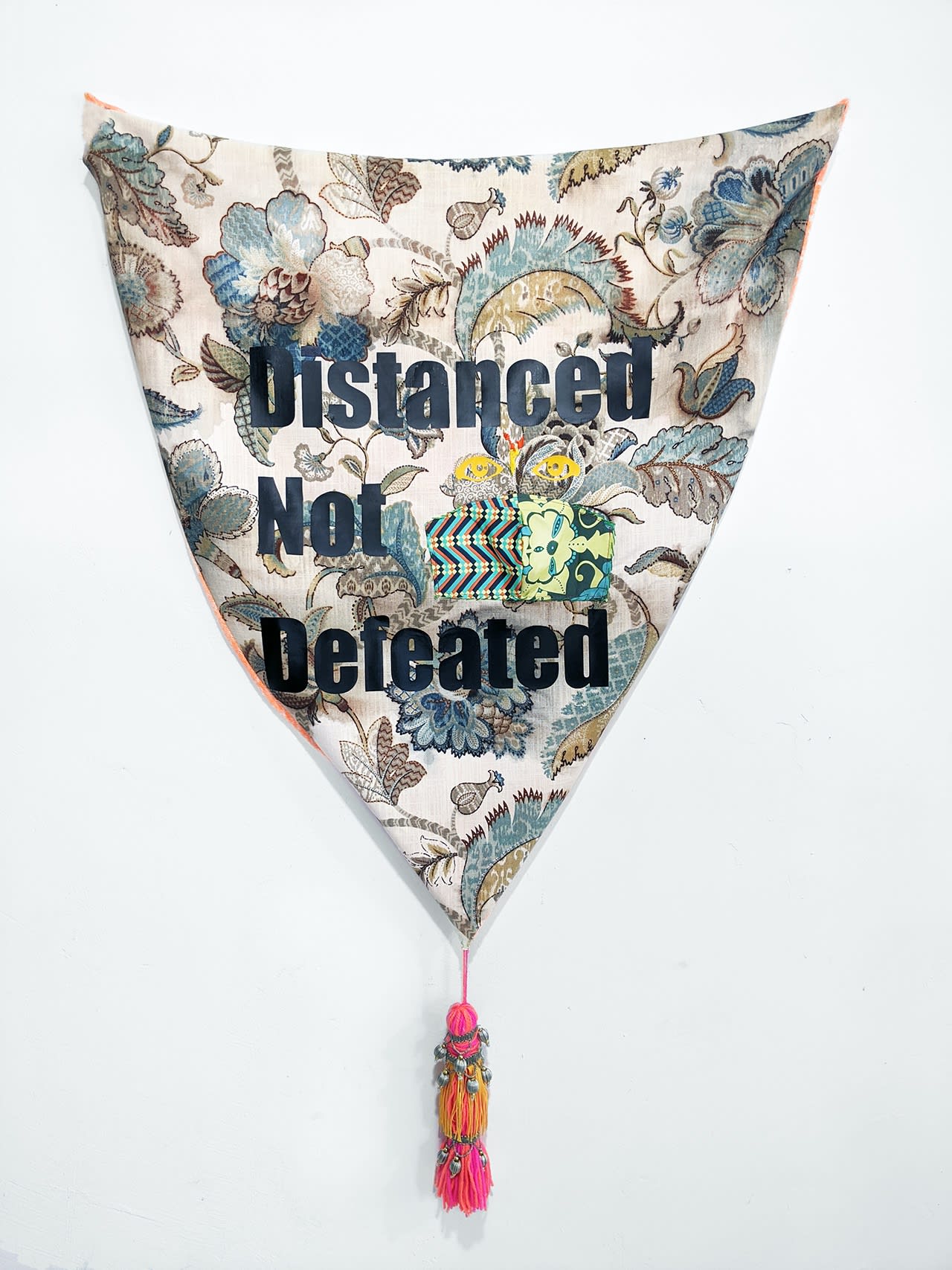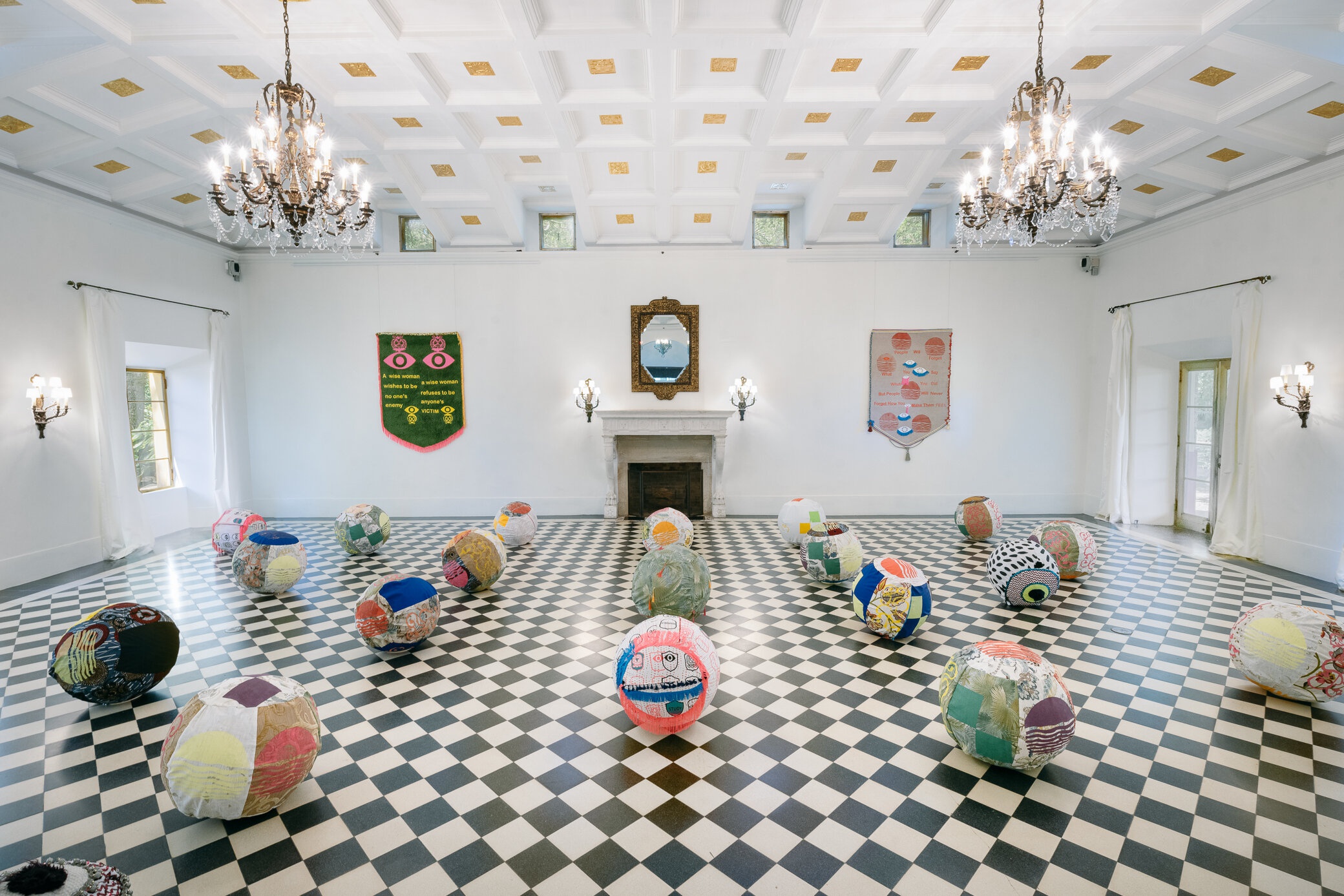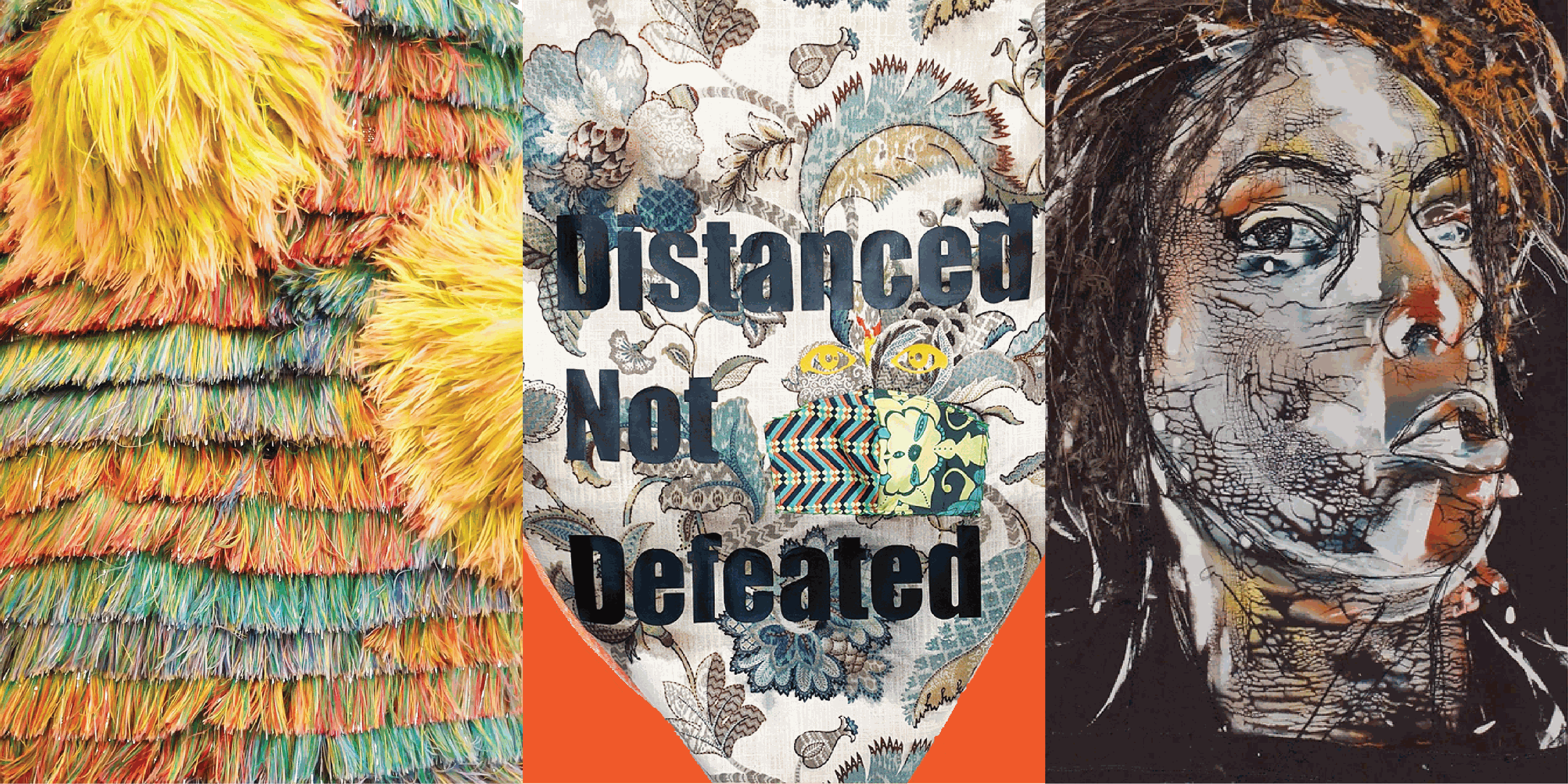The beginnings of textile work are an incomplete picture, what with the perishable quality of early materials, but what is certain is that the craft has always been more than simply utilitarian. That much is clear considering that the items most representative of us—our personalities, cultures, our values, our memories—tend to be woven, embroidered, or sewed. Baskets, nets, satchels, scarves, blankets, clothes, even doilies, are all born from the simplest of materials and are carried by us all as figureheads for what matter to us. They don’t even have to have a purpose beyond fuzzy sentiments and memories these days, what with the notion of hand-stitching and dyeing becoming almost absurd when sat next to mass-produced textiles.
There’s also an implicit standard at play when witnessing textile work that I find interesting. More often than not, I’m guilty of assuming that a woman of any experience is behind a certain piece. More often than not, I’m right, but that doesn’t inhibit me from exploring the importance of a woman holding a sewing needle. Historically, as humans created permanent settlements and notions of community, textile work has been relegated to become emblematic of domesticity, femininity, and a “keeping to oneself”—as in, a woman minding her own business. What does it even mean for a woman to “mind her own business?”
Miami-based textile artist and Director of Programming at Oolite Arts in Miami Beach, Laura Marsh, subverts this concept in what she refers to as a “socially engaged practice,” disrupting the idea that textile work is submissive along with it.


Distanced, Laura Marsh. Vinyl Applique on Mixed Fabrics. 30 × 49 in[/caption]
Hailing from a working-class region of Pennsylvania that’s fallen prey to fracking, and two generations of women who sew, Laura Marsh’s approach to public textile art installations is as informed and conscious as it is open-minded and hopeful. Her embroidered flags and banners are often adorned with slogans such as Cultivate Generosity in the Arts, Be Diversely Progressive, and Power Can Be Taken But Not Given. A recent series of silk-screened Nazar eye imagery wrapped around yoga balls and was featured in residency at the Charles Deering Estate here, in Miami, FL.; one of her banners is currently on display at the Rockefeller Center in New York.
The familiarity of texture and pattern, coupled with the juxtaposition of quirky color palates and rallying cries against a communal give-and-take of oppression and contempt, allows those of us viewing her work to comfortably approach the uncomfortable. In fact, it’s intended. Marsh doesn’t hold back—she wants us to know what she knows, understand what she understands, and she’s holding an embroidered hand out for us, so we can join her in doing something about it. Marsh’s body of work exhibits a duality that is both tender and adamant about the need to push boundaries (including our own) and our capability to be active participants in our lives, wherever we’re at.
This same tenderness, that which subsists in Marsh’s work and our textile memories, is what allows her to properly reflect our values and belief systems back at us. Instead of tearing down the wall between art and public, between artist and spectator, between ideology and practice, Marsh erects banners that demand engagement—engagement beyond the act of looking, engagement that tugs at our collective consciousness, that which makes us reflect on the state of our society as we’ve known it. Gabriel Torres, curator of The CAMP Gallery’s newest online exhibition, Obscured Objects, which features some of Marsh’s work alongside Silvia Yapur and Stefano Ogliari Badessi, agrees, adding that Marsh “does not shy away from depicting an unforgiving reality, yet has the will to challenge the viewer to embrace and feel, to an almost literal degree, such truths and to be strengthened by the hardships they bring.”

Entwined installation at The Deering Estate, Miami, FL.[/caption]
Through her work, Marsh is adept at creating environments wherein the audience is confronted with the difficult truths we’re all guilty of forgetting, and giving us a merciful and encouraging space to deconstruct the realities of class, mobility, and experience we don’t like facing. There is no doubt that a 24-hour news cycle and limitless access to any kind of information exhausts us, and this is why Marsh’s work is most necessary now, and not in the past most of us seem to assign it to.
We often expect textile art to be fuzzy and kitschy, wanting it to make us feel the same way we do when we unearth our baby blankets from a forgotten stash at our parents’ homes, even if the imagery is anything but baby-friendly (I’m looking at you, Katika! We’ll be talking soon.) There’s also an expectation, some place within us, that believes textile art to be the woman-dominated, beautifully bland type of work that serves more as company for our other knick-knacks than a realm for empowerment and social justice. Thus, I circle back to this idea of textile work being made out to be a way for women to “mind their business”—except, textiles have never been just about women at every point in time minding their business.

Catalan Combination V (left) and VIII (right), Laura Marsh. S Silkscreened imagery on sphere pattern around a yoga ball. 25 3/5 in. diameter[/caption]
Textile work, “proper” art included, is and has always been a force for change, its breadth encompassing everything and anything from fashion statements to family tapestries, Quaker quilts, national flags. That list could go on and on, and on, and on. Textile art is intertwined with our very existence, and this is one of the only undeniable, universal truths; it is (and this much is arguable) a constant display of our humanity.
Laura Marsh isn’t going to be minding her business, and she doesn’t want us to mind our business, either. Not now, not when there are too many walls between us, of either our own imagination or the physical ones raised between our communities.

